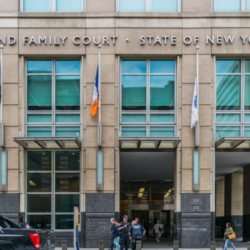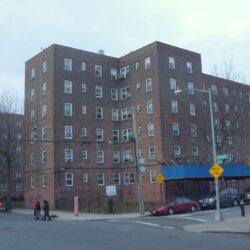
On This Day in History, February 2: Brooklynites Want Their Booze on Sunday
On Feb. 2, 1902, a front-page story in the Brooklyn Daily Eagle reported that “Three of Each Four Voters Favors Sunday Saloons.” A few years earlier, New York state passed the Raines Law, which prohibited the sale of alcohol on Sundays, except in hotels. This prompted many saloons to throw together some rooms for rent above their bars, which in turn was believed to increase prostitution. Below is an excerpt of the Eagle’s Feb. 2 story:
“If the results of a careful canvass are a correct indication of the views of the voting population of Brooklyn, a large, indeed a dominating majority in this borough favor Sunday opening of the saloons and legislation to that end.
“The Raines excise law and the question of its rigid or liberal enforcement is at the present time exciting almost if not quite as great interest and discussion in New York City as it aroused at the time it was foisted upon the metropolis by up-the-state legislators four years ago. There is no denying the fact that it constitutes the most important and most difficult problem, which the present reform administration has been called upon to solve. Indeed, many of the most thoughtful and influential citizens have already despaired of any satisfactory solutions without assistance from the legislature.
“In the belief that authentic information in regard to the opinion of the voting residents of this borough on the question involved will prove of direct advantage to all residents of the borough, in crystallizing public opinion and establishing an active sentiment which will speedily make itself felt throughout the state, as well as in guiding the action of the legislators representing the city at Albany, the Eagle has made a personal canvass of about 5,000 voting residents of Brooklyn, representative of all classes and all sections of the borough.
“The canvass was made on Thursday, Friday and Saturday of the week just closed. The results indicate clearly the sentiment of Brooklyn is overwhelmingly in favor of legalizing the sale of liquor on Sunday, either for a part or whole of the day. As between those who wish for a free and unrestricted sale on Sunday and those who prefer sale within specified hours not coincident with the recognized hours of church service, the latter class are in the majority in the ratio of about 2 to 1. To give the approximate result of the canvass in a single sentence, if the voting population of Brooklyn were divided into four equal parts, two parts would favor the legal sale of liquor within the specified hours of the day, one part would be in favor of unrestricted sale on Sunday as on weekdays and one part would be wholly opposed to the sale of liquor at all on Sunday.
“The fractions named are approximate and are not a strictly accurate estimate of the sentiment indicated by those who responded to the questions of the Eagle canvassers. Slightly less than one half of the whole number were in favor of partial Sunday opening. Slightly more than one fourth were in favor of the unrestricted sale on Sunday and only a very few more than one fifth were in favor of closing the saloons entirely. At least one third of the latter class were persons who said they were opposed to the sale of liquor at any and all times.
“On the first day of the canvass it was learned that there was a large and intelligent class of the community who were in favor of the literal and rigid enforcement of all laws which are upon the statute books of the state and for this reason the opinion that under the present law saloons not within the hotel specifications should be kept closed on Sundays….
“The Eagle canvass was chiefly conducted on the boats and at the Brooklyn terminals of the South, Hamilton, Fulton and Broadway ferries during the evening rush hours. The canvassers also visited hotels, barber shops and other places of public resort. The intense public interest in the discussion which is now going on was made evident from the percentage of those interviewed who expressed their opinion.”
— Compiled by P. Neidl
Leave a Comment
Leave a Comment

